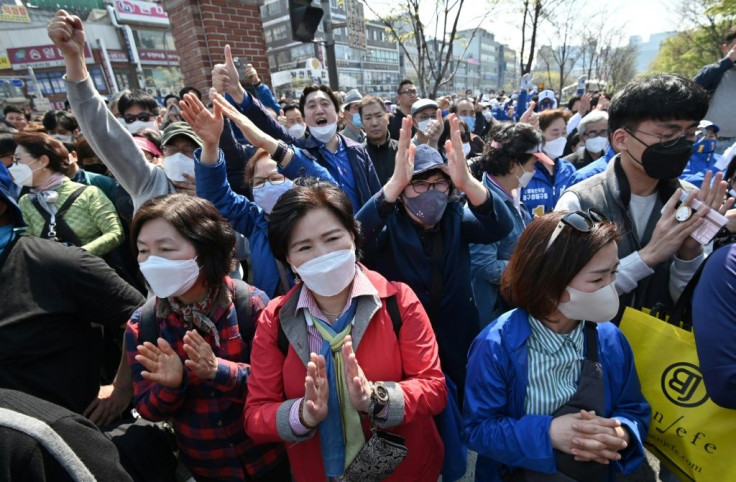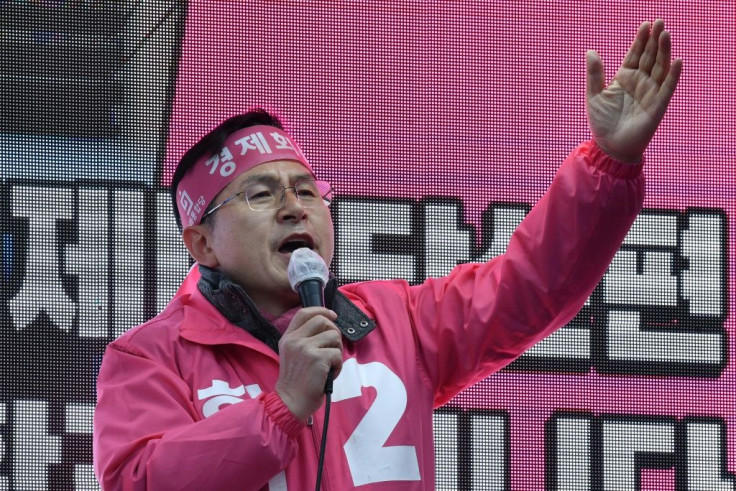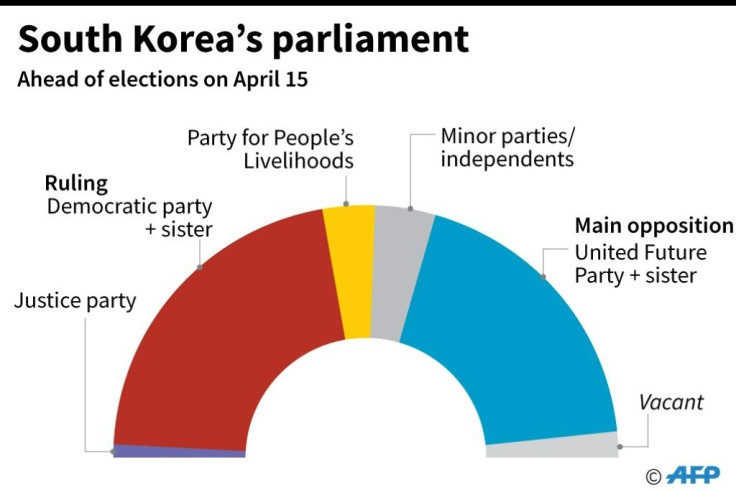South Koreans Head To Polls Despite Global Pandemic

Temperature checks on voters, separate booths for those with fevers, special polling stations for the quarantined: South Koreans headed to the polls Wednesday with a big turnout expected despite the coronavirus threat.
South Korea is the first country with a major virus outbreak to hold a national election since the global pandemic began, and a complex web of safety measures was spun around the ballot, as well as the campaigning that preceded it.
The parliamentary poll vote kicked off at 6 am (2100 GMT Tuesday) with 43.9 million voters eligible to cast their ballots.
All citizens must wear protective masks and undergo temperature checks at the polling station. Those found to have fever will cast their ballots in separate booths to be disinfected after each use.
Voters have also been asked to wear plastic gloves after cleaning their hands with sanitiser at polling stations, and to keep at least one metre (three feet) apart.
"We are now holding an election at a very difficult time amid social distancing campaigns and a contraction of economic activity," election commission chairman Kwon Soon-il said Tuesday.
"Please go to the polling stations tomorrow and show that you are the owners of this country."
South Korea was among the first countries to be hit by the virus outside China, where the coronavirus first emerged.
For a time South Korea had the world's second-largest outbreak, before it was largely brought under control through a widespread testing and a contact-tracing drive.

Those self-quarantining at home will be allowed out to vote in a 100-minute window around the polls' 6:00 pm close, as long as they do not show virus symptoms.
Special polling stations were set up at eight central quarantine facilities at the weekend to enable residents to vote.
But anyone who is staying at home and has developed symptoms is effectively disenfranchised.
Campaigning has also been affected by the outbreak: instead of the traditional handshakes and distributing of name cards, candidates have been keeping their distance from citizens, bowing and offering an occasional fist bump.

Many have turned to online media such as Youtube and Instagram to connect with voters, while some have even volunteered to disinfect parts of their constituencies.
A survey conducted by Gallup Korea last week showed that 27 percent of respondents were reluctant to vote due to the epidemic.
But 72 percent said they were not worried, and a high turnout is expected after 11.7 million people, including President Moon Jae-in, voted early over the weekend.
South Korea's relatively quick and effective handling of the epidemic has been a boon for the left-leaning Moon ahead of the vote, largely seen as a referendum on his performance.
Just a few months ago he was assailed by critics over sluggish economic growth and his dovish approach to North Korea.
But fewer than 40 new coronavirus cases were recorded on each of the six days up to and including Monday, the latest available figures.
Overall, the country has had nearly 11,000 infections, and 222 deaths.
Moon's approval rating has jumped from 41 percent in late January to 57 percent last week, according to Gallup polls.
Moon's position is not at issue as he is directly elected, but while his Democratic party is the largest in parliament it does not hold a majority, relying on minority support to pass legislation.
The country uses a mix of first-past-the-post constituencies and proportional representation, and some high school students are voting for the first time after Seoul lowered the age limit from 19 to 18.
South Korea bans opinion polls in the last week before an election, but the last available gave the Democratic party 44 percent support, a huge lead over the main conservative opposition United Future Party, on 23 percent.
At first the coronavirus outbreak worked against the government, said Hahn Kyu-sup, a communications professor at Seoul National University, "but now with the virus spreading to other countries and South Korea receiving a relatively good evaluation in comparison, the epidemic has become an advantage".
© Copyright AFP 2024. All rights reserved.





















